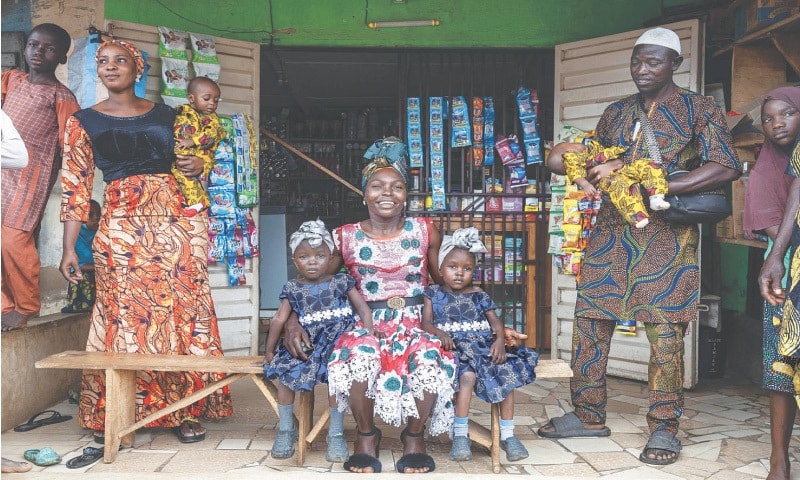It is widely acknowledged that the town of Igbo-Ora in Nigeria is the twin capital of the world.

The small town of Igbo-Ora in southwestern Nigeria would probably not attract the attention of tourists if it weren't for one strange thing: Everywhere, people can easily see couples who look exactly the same from appearance to clothing.
Hundreds of people gathered in Igbo-Ora over the weekend to celebrate the town’s unusually high twin birth rate, which many have acknowledged as the “twin capital of the world.”
“Here, almost every family has twins,” says King Oba Kehinde Gbadewole Olugbenle of the Yoruba people, who is one of them.
The Yoruba culture has always valued the phenomenon of twins and traditionally named twins: the name Taiwo meaning “the one who tastes the world” was given to the first born child and Kehinde meaning “the one who comes later” was given to the child who came out of the mother’s womb later.
Even in the vast Yorubaland region, where twinning rates are already higher than average, the town of Igbo-Ora stands out with its impressive twinning rate: About 50 pairs of twins per 1,000 births, a rate four times higher than the global average.
But what makes this special?
Many people believe that the secret lies in diet, especially okra leaf soup or Ilasa soup combined with taro and cassava flour (amala). But fertility experts are skeptical about this, saying that there is no clear evidence to prove the link between diet and high twin birth rates.
Scientists are studying the genetic factors and attractiveness of twins that may help them find a partner more easily, thereby increasing their chances of having children.
Whatever the reason, the Igbo-Ora people agree that having twins is a blessing - especially as Nigeria goes through its worst economic crisis in a generation.
Suliat Mobolaji, 30, gave birth to twins eight months ago. She couldn’t hide her joy when talking about this: “Having twins has changed my life. You can’t have twins without luck. It’s a gift from God.”
The festivities over the weekend added to the joy. A red carpet was rolled out for a parade of twins, young and old, all dressed in matching outfits, from traditional adire garments to petite girls in purple dresses and matching handbags. Dozens of other pairs of twins also lined the streets of the town.
The organisers, who are also twins, are hoping to set a world record for the largest number of twins attending one event. Twin brothers Taiwo and Kehinde Oguntoye, 39, are also planning a mass wedding for twins next year.
“Twins bring good luck, fame and fortune. That is why we Yoruba people always welcome the birth of twins, and perhaps why God has blessed us with the highest number of twins in the world,” Taiwo proudly said.